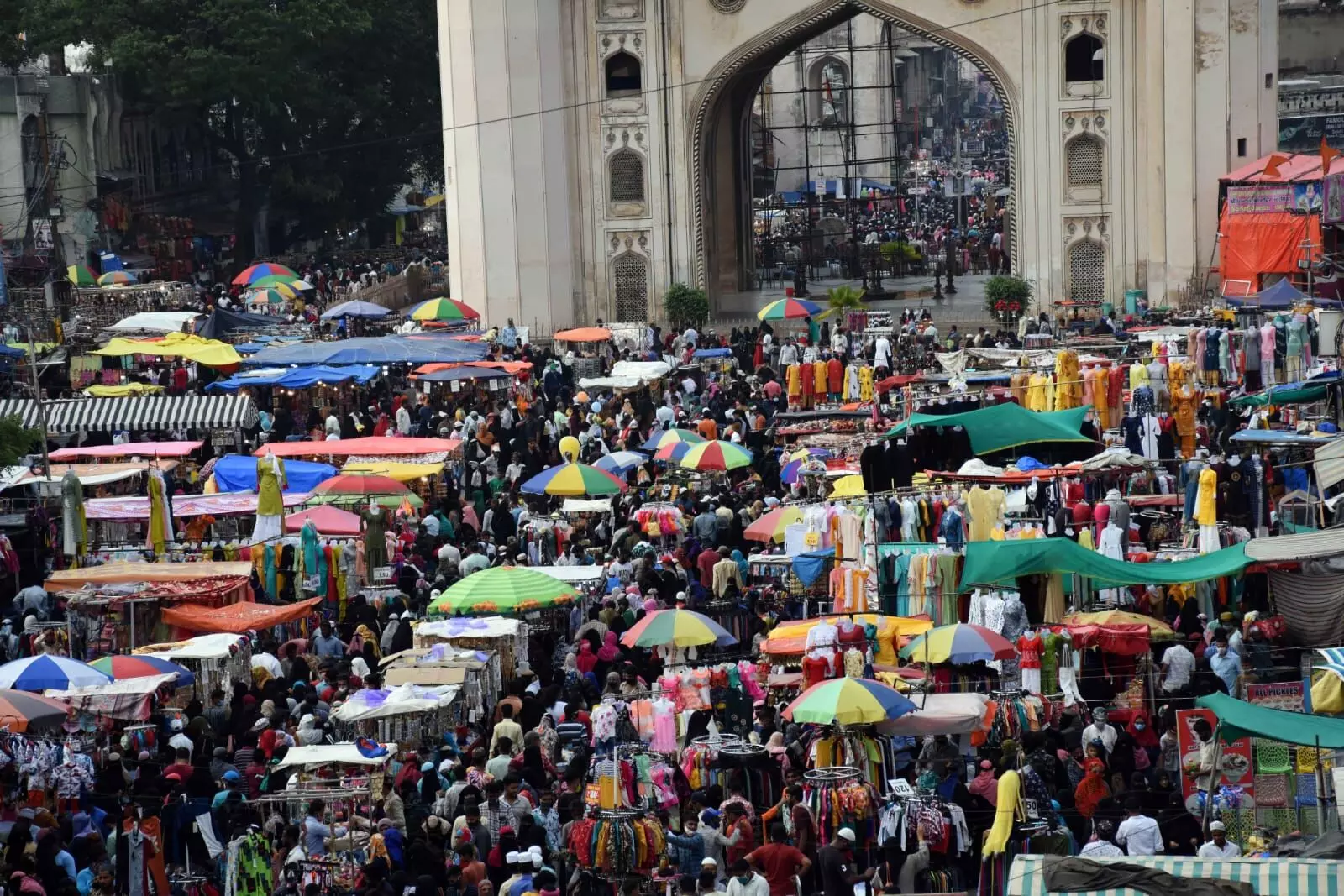India surpasses China to become world's most populous nation: UN data
China now has a population of 142.57 crore, thus being the second most populous country, the UN world population dashboard showed
By Newsmeter Network
New Delhi: India has surpassed China to become the world's most populous nation with 142.86 crore people, according to the latest UN data.
China now has a population of 142.57 crore, thus being the second most populous country, the UN world population dashboard showed.
According to a UNFPA's State of the World Population Report (SWOP) 2023, about 25 per cent of India's population is in the age group of 0-14 years, 18 per cent in the 10 to 19 age group, 26 per cent in the age bracket of 10 to 24 years, 68 per cent in 15 to 64 years age group, and 7 per cent above 65 years.
The population demographics of India vary from state to state. Kerala and Punjab have an ageing population while Bihar and Uttar Pradesh have a young population, experts have said.
This is the first time that India has topped the UN list of most populous countries since it started collecting population data in 1950.
According to the United Nations' World Population Prospects-2022, India's population was 86.1 crore while China's population was 114.4 crore in 1950.
The report also states that by 2050, India's population is expected to rise to 166.8 crore while China's population would dip to 131.7 crore.
The report also stated that the global population is growing at its slowest rate since 1950, having fallen under one per cent in 2020.
According to the World Population Prospects-2022, India's population last year was 141.2 crore while China's population was 142.6 crore. The report said the global population was projected to reach eight billion on November 15.
According to the UNFPA, the life expectancy at birth for male in India is 71 while for female it is 74 years.
The contraceptive prevalence rate of women aged 15-49 by any method as of 2023 is 51 per cent.
Andrea Wojnar, the representative for United Nations Population Fund (UNFPA) India and the country director for Bhutan, said, "India's 1.4 billion people must be seen as 1.4 billion opportunities." "As the country with the largest youth cohort -- its 254 million youth (15-24 years) -- can be a source of innovation, new thinking and lasting solutions.
"The trajectory can leapfrog forward if women and girls, in particular, are equipped with equal educational and skill building opportunities, access to technology and digital innovations, and most importantly with information and power to fully exercise their reproductive rights and choices," she said.
Wojnar said that ensuring gender equality, empowerment and advancing greater bodily autonomy for women and girls are the key determinants for a sustainable future. Individual rights and choices should be respected, and all should be able to decide when to have children, if any, and how many, she said.
"Women and girls should be at the centre of sexual and reproductive policies and programmes. When rights, choices and equal value of all people are truly respected and held, only then can we unlock a future of infinite possibilities," the UN official added.
Inputs from PTI